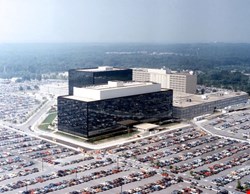
"Now it gets interesting," headlines Forbes, "we've one court stating that the NSA data collection is legal, another illegal." The result, it believes, means that it will now need to be decided by the Supreme Court.
Just over a week ago, Judge Leon decided that the Smith v Maryland ruling of 1979 could not be used to argue that Americans have no expectation of privacy in their use of modern smartphones. Smith v Maryland is one of the key arguments used by the government to claim legality for its collection of telephone metadata. Without this argument from more than 30 years ago, Judge Leon concluded that the mass collection of metadata almost certainly violates the fourth amendment.
But in a separate case in New York, brought by the ACLU, Judge William Pauley ruled oppositely last Friday. His arguments seem to follow the government line. Where the government says it needs to collect everything in order to be able to 'connect the dots,' judge Pauley declared, "The ACLU argues that the category at issue – all telephony metadata – is too broad and contains too much irrelevant information. That argument has no traction here. Because without all the data points, the government cannot be certain it is connecting the pertinent ones,” he said.
The key question for Pauley is 'reasonableness.' “The right to be free from searches is fundamental but not absolute,” he said. “Whether the fourth amendment protects bulk telephony metadata is ultimately a question of reasonableness.” Given the terrorist threat and no other way to 'connect the dots', his conclusion is that the metadata collection is therefore reasonable and therefore lawful.
The ACLU immediately said it would appeal. “We are extremely disappointed with this decision, which misinterprets the relevant statutes, understates the privacy implications of the government’s surveillance and misapplies a narrow and outdated precedent to read away core constitutional protections,” said Jameel Jaffer, ACLU deputy legal director. “We intend to appeal and look forward to making our case in the Second Circuit.”
The EFF is equally disappointed. "Among other things," it said, "the decision relied on government justifications for the program that have been repeatedly disproven, and a 30-year-old Supreme Court decision concerning the call records of a single person over a matter of weeks. Neither provides a legitimate basis for the NSA to vacuum up the call records of hundreds of millions of Americans without any suspicion of wrongdoing, and to keep and search those records for 5 years."
During 2013 the UK government sought to legalize mass law enforcement collection of metadata within the stalled Communications Bill. Both governments claim that metadata does not disclose personal details. Early last week the Web Policy technology blog tested this suggestion. It crowd sourced 5000 willing volunteers, and then attempted to put names to their metadata. With just basic searches on the obvious websites, it named 73% of a random sample of 100. It then used "Intelius, a cheap consumer-oriented service" and similarly found the personal names relating to 74% of the samples. With the two approaches Web Policy had put names to 91% of the telephone numbers.
"If a few academic researchers can get this far this quickly," it concluded, "it’s difficult to believe the NSA would have any trouble identifying the overwhelming majority of American phone numbers."